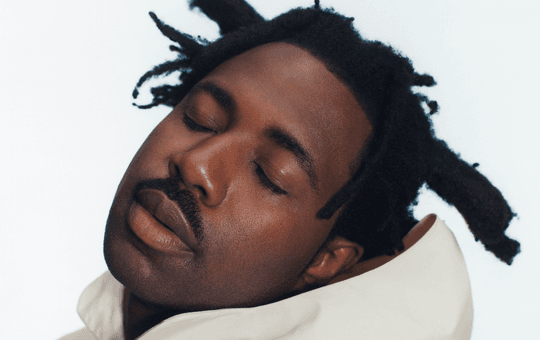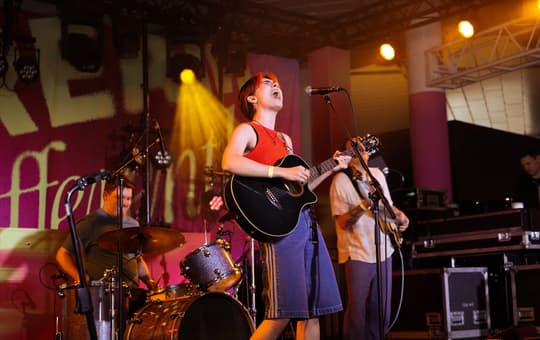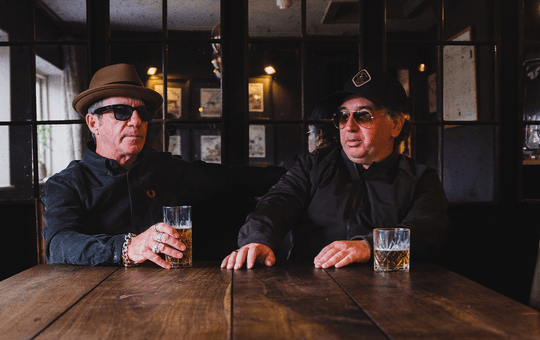Thee Physical
Since the release of his debut album ‘Dark Rift’ in summer 2009, Pictureplane, aka Denver’s Travis Egedy, has been presented as a counter-culture pin-up for a new generation of American ravers inspired by his Real Is A Feeling night at Denver’s Rhinoceropolis art/music venue. Like his hero Lil B, Pictureplane has embraced social media, specifically Twitter, as an extension of his consciousness – a non-physical external hard drive for all his revelations, dreams and self-discoveries – and the impact of that can be felt on his new album. While ‘Dark Rift’ established his sonic palette (rave voices lost in the smoke, tranced out keyboards, gothic atmospherics, acid-dipped break beats), ‘Thee Physical’ lays atop this his politics (gender as a construct, fluid sexuality, spirituality).
“There are many emotions and ideas that drive my music,” he explained when I spoke to him back in winter 2009, when the seeds of ‘Thee Physical’ were crystallising. “A central theme is humanity, optimism and the intense beauty in human spirit. Physicality vs metaphysicality. The inside and outside of things. Sexuality and consciousness.”
Physicality in the internet age is one of the most present themes he explores on ‘Thee Physical’, most clearly expressed on the album’s undoubted crowning jewel: Post Physical. “We are all post physical,” he sings in a wistful whisper, cutting to the quick of what it is to exist, to be, in the modern world: there’s no longer any need for actual physical contact to feel shared experience. Then later, on Real Is A Feeling: “Real is a feeling, and we all feel real,” taking a trope that, although a mite flimsy with overuse, is still the fastest shortcut to reverential resonance in 140 characters. If something reaches through the screen, if it scratches our skin, our heart, then it’s real.
Musically, ‘Thee Physical’ has a shiny naivety to it. Against a backdrop of jagged beats and video game percussion, vocal samples from club classics (including DJ Wildchild, Robin S and Beats International) vibrate, slivers of familiar melodies still heavy with the sweat of a thousand wide-eyed nights. Had this album been released in a different time – or continent – such sampling could be perceived as ironic but for Pictureplane these songs represent something sincere and sacred: paeans from the original rave generation, for whom unification was the answer – until the drugs wore off at least.
For an artist so enthralled with ideas of collective consciousness expansion, the appeal of rave is obvious – and its shiny, come-together optimism becomes the perfect backdrop for his exploration of gender politics. One of the remaining socially accepted prejudices in the western world is that against perceived gender transgression. What it is to be male and female are deeply ingrained, antiquated notions that the mainstream is still beholden to. It might seem like an obvious point (and, yes, drag and androgyny are also as old as the hills) but to have a playful approach to gender stereotypes in an everyday context is still today to run the risk of abuse or worse. We might be 21st century beings but we’re far from being as open-minded as we’d like to believe. Which is why Pictureplane, ever playful with his appearance on and off stage and often dragged up for performance, is a radical figure. Especially in the context of the anonymous, ultra ‘male’ landscape of underground dance music. It’s something he captures perfectly on Trancegender, which could be our generation’s Someday by Ce Ce Rogers: a dance record with a message, a modern day prayer for a future free from discrimination. While Ce Ce Rogers sang about apartheid, Pictureplane dreams about a genderless future – “you could be my boy and I could be your girl / we could be genderless / trans”. At a surface glance, the contexts may be worlds apart but what both Ce Ce Rogers and Pictureplane speak of, reach for, is freedom. That’s pure. That’s beautiful.
Overall, though, it’s clear that Pictureplane is at his most potent when he tackles the themes closest to his heart head-on – Post Physical, Real Is A Feeling and Trancegender all hit moments of greatness. While tracks like Body Mod and Black Nails are enjoyable, they just don’t resonant as strongly. As a body of work, ‘Thee Physical’ isn’t perfect but it’s an exciting, crucial one – the sound of an artist reaching.
7/10













